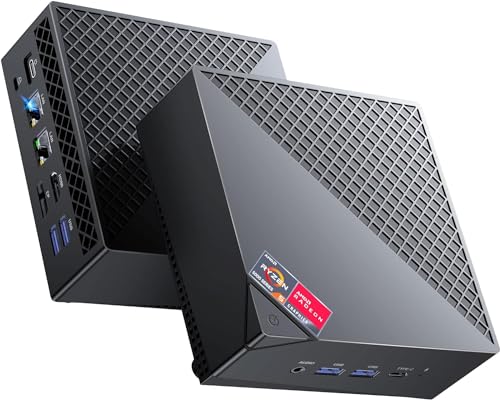Understanding Desktop PCs: What They Are and How They Work
What is a Desktop PC?
When we talk about a desktop PC, we refer to a personal computer designed to be used at a desk or fixed location. Unlike laptops, which are portable and run on batteries, desktop PCs typically comprise multiple components: a central processing unit (CPU), a monitor, a keyboard, and a mouse. The CPU handles the computing tasks, while the monitor displays the outputs, creating an integrated system perfect for tasks ranging from simple web browsing to intensive gaming.
How Do Desktop PCs Operate?
Desktop PCs operate by processing input data through the CPU, which communicates with other components such as the RAM (memory) and the hard drive (storage). When you turn on your desktop, the operating system loads up, allowing you to run various applications. The graphical capabilities come from a dedicated graphics card or integrated graphics within the CPU. This structure means desktop PCs can offer greater performance for complex tasks compared to laptops due to better cooling solutions and more powerful components.
Key Features to Consider When Choosing a Desktop PC
Performance and Speed
The performance of a desktop PC is primarily influenced by its processor, RAM, and storage type. For everyday tasks like browsing and streaming, a dual-core processor with 8GB of RAM is sufficient. However, for gaming or video editing, consider a powerful multi-core processor and at least 16GB of RAM for smooth operation. Also, opt for solid-state drives (SSDs) instead of traditional hard drives for significantly faster loading times.
Graphics Capability
If gaming or graphics-intensive tasks are on your agenda, the graphics card is crucial. There are two types: integrated graphics, which share resources with the CPU, and dedicated graphics cards that handle their display processing. For serious gamers or creative professionals, a dedicated graphics card will provide the performance needed for high-resolution gaming or rendering.
Expandability and Ports
As technology evolves, so do our needs. Choosing a desktop with ample expansion options, such as extra slots for RAM or the ability to add more storage, is wise. Check for various ports too – USB-C, HDMI, or Ethernet – to ensure you can connect all your peripherals without hassle. This ensures your desktop can grow with you rather than becoming obsolete as new devices emerge.
Different Types of Desktop PCs for Every User
All-in-One PCs vs. Traditional Desktops
All-in-One PCs integrate the monitor and CPU into a single unit, offering a sleek look with less cable clutter, ideal for those with limited space. Traditional desktops separate the tower and monitor, generally allowing for more customization and upgrade potential. Depending on your setup, both serve well, and choosing one will depend on your aesthetic and performance needs.
Gaming Desktops
Gaming desktops are tailored for high-performance needs, featuring powerful CPUs, dedicated graphics cards, and efficient cooling systems. They often come pre-built, allowing you to start gaming right away. Alternatively, you can customise a rig specifically for your gaming preferences, such as VR capability or ultra-high-definition gaming.
Compact and Mini PCs
For users who need a more portable solution, compact or mini PCs take up less space while still delivering solid performance for everyday tasks. These systems may not handle high-end gaming or intensive video editing as well but are perfect for web browsing and office functions, making them excellent for minimalistic setups.
Top Desktop PC Brands: Who to Trust and Why
Understanding Brand Reliability
When investing in a desktop PC, it’s essential to consider the brand most trusted for quality and customer service. Brands like Dell and HP have a long-standing reputation for producing reliable desktop computers suited for both home and business use. Apple offers an impressive line of stylish desktops with a strong ecosystem that many creative professionals swear by.
Why Brand Matters
Brand reliability often comes down to the support and warranty services available. Well-established brands usually provide better customer support, ensuring your needs are handled swiftly. This is particularly crucial for issues that can disrupt work or play, where a reliable service can mean the difference between extended downtime or immediate resolution.
Making the Right Purchase: Where to Buy Your Desktop PC
Choosing the Right Retailer
Finding the best place to purchase your desktop PC can impact your overall experience. Physical retailers allow you to see the product in person, and staff can provide immediate assistance. Online stores offer convenience, often at better prices, and allow for comprehensive comparisons. Look for retailers that provide good customer service and clear return policies.
Considering Online vs. In-store Purchases
When deciding between online and in-store purchase, think about your comfort level with technology. If you prefer hands-on experience, visiting a store may be best. However, if you know what you want or are looking for specific models, online shopping often provides extensive reviews and user feedback to guide your decision. Whichever method you choose, ensure the retailer has a good reputation for customer satisfaction.






















